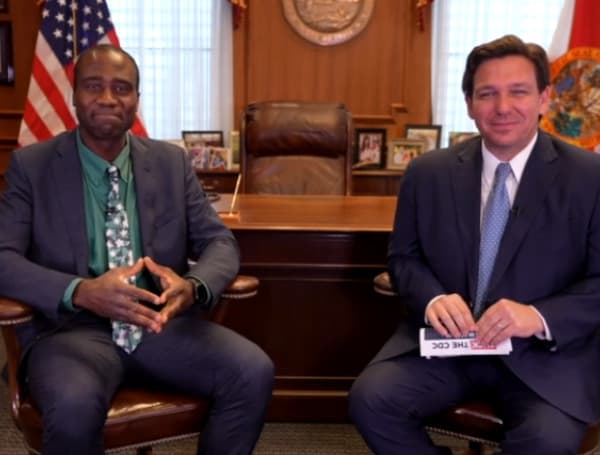
On Dec. 13, escalating his long-standing critique of federal COVID policies, DeSantis announced a three-part assault on the federal regulatory edifice.
First, he seeks a state grand jury to “investigate crimes and wrongdoing committed against Floridians related to the COVID-19 vaccine.” (emphasis added); second, he demands heightened surveillance of the effects of the vaccine, including the results of autopsies (yikes!); and third (and perhaps most profoundly), he will establish a “Public Health Integrity Committee.”
That new committee will “assess federal public health recommendations and guidance to ensure that Florida’s public health policies are tailored for Florida’s communities and priorities.”
We can pause over that last item, because while for now the committee is focused on COVID, in it we can see the kernel of a red-state health regulatory mechanism, extending far beyond COVID —and being much different from the regime imposed by the Centers for Disease Control and Prevention (CDC) and the Food and Drug Administration (FDA).
Android Users, Click Here To Download The Free Press App And Never Miss A Story. Follow Us On Facebook Here Or Twitter Here. Signup for our free newsletter by clicking here.
Indeed, given DeSantis’ emphasis on personal liberty — he has pledged that Florida will be “the freest state in the United States” — and the overall expansion of “red state consciousness” these past few years, it’s a cinch that whatever emerges in Florida will be notably separate and distinct from the mainstream liberalism found in Washington, D.C. That is, FDA and CDC look more like “blue state” outfits, popular in Biden country, but unpopular everywhere else.
Lest anyone doubt the wideness of the chasm separating Florida and the feds, we need only listen to DeSantis’ point man on this effort, the state’s surgeon general, Dr. Joseph Ladapo, M.D. Lumping the Biden administration in with the big drug companies — who long ago established an alliance with the FDA and federal regulation — Ladapo jabbed, “Health care professionals should always communicate the risks of a medical intervention to their patients in a manner that is clinically appropriate and meets standards of ethical practice. President Biden and Big Pharma have completely prevented that from happening.”
So that’s the throw-down: DeSantis, Ladapo and Florida vs. the federal government, Big Pharma and the public-health establishment writ large. We can call the latter cluster, simply, Big Health.
The coming struggle — which we might short-hand as Freedom vs. Big Health — is so fraught that one hesitates to make any sort of prediction, even as we observe that the struggle fits in with a megatrend of our time, the ever-widening red-blue split.
In fact, it’s possible to sketch out what red-state regulation might look like, based on the DeSantis-ian principle of personal freedom.
“A new paradigm of red-state oversight,” I wrote in February, “needn’t be a temple of bureaucrats such as the current FDA, which employs 9,000 people, spread over 130 acres, at its Maryland headquarters. Instead, a red FDA could be virtualized; it could be a digital clearinghouse for all available information about a treatment. All the studies and data points could be algorithmed and metadata-ed into a user-friendly dashboard.”
I added, “Then patients and their doctors could make an informed choice, exercising their right to try.”
Freedom of experimentation is based, of course, on the constitutional principle of federalism — each state as a laboratory of democracy.
As Supreme Court Justice Louis Brandeis declared back in 1932, “A single courageous State may, if its citizens choose, serve as a laboratory; and try novel social and economic experiments without risk to the rest of the country. . . . If we would guide by the light of reason, we must let our minds be bold.”
Let’s savor those last words: “let our minds be bold.” That’s the way of freedom, and also the path to health innovation. Florida, being one “laboratory,” has been bold. Now let’s see about other red states.
James P. Pinkerton, a former White House domestic policy aide to Presidents Ronald Reagan and George H. W. Bush, has been a Fox News contributor since 1996.
The views and opinions expressed in this commentary are those of the author and do not reflect the official position of The Free Press.
